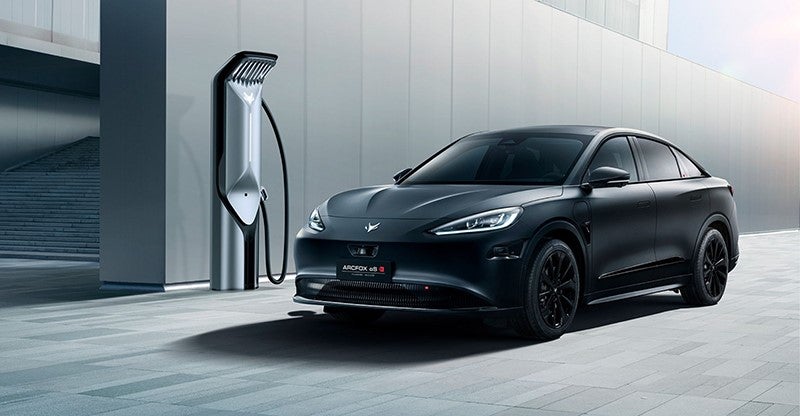
Hyundai Motor has agreed to produce electric vehicles (EVs) under BAIC Motor Corporation’s Arcfox brand at their joint venture factory in Beijing, according to South Korean reports.
The two companies appear set to produce the EVs next year at a plant belonging to Beijing Hyundai Motor Company, the 50:50 joint venture in the country, with finer details of the deal still under discussion.

Discover B2B Marketing That Performs
Combine business intelligence and editorial excellence to reach engaged professionals across 36 leading media platforms.
BAIC, which also operates the Beijing Benz JV with Mercedes-Benz, established Arcfox as a premium EV brand in 2017 with a flagship Alpha S·HI model equipped with a Huawei self driving system.
Hyundai is struggling to rebuild its operations in China and reverse operating losses estimated at around US$600m in the country last year. Its sales have fallen sharply, since peaking at around 1.15m units in 2016, after the South Korean government agreed to deploy the US THAAD missile defence system on its territory.
Last year Hyundai sales in China fell 25% to just over 260,000 units, the lowest tally since the 2007 global financial crisis, despite significant efforts in recent years to produce models tailored for local sale.
The joint venture increased output 9% to 151,000 units in the first eight months of 2023 with exports of the locally-designed Custo to Taiwan having started in August.
The automaker sold a factory in Beijing in 2021 and expects to complete the sale of two other plants in Chongqing and Changzhou by the end of the year. This will reduce its annual production capacity in China to 750,000 vehicles from a peak of 1.6m before restructuring began.
Hyundai CEO Chang Jae-hoon, speaking at the company’s CEO Investor Day last June, said: “We will improve production efficiency at the remaining plants in China and increase exports to emerging markets through a global production model.”
Hyundai had previously planned to produce Ioniq EVs in China but these plans were shelved due to intensifying competition from local EV manufacturers and continued price wars.






